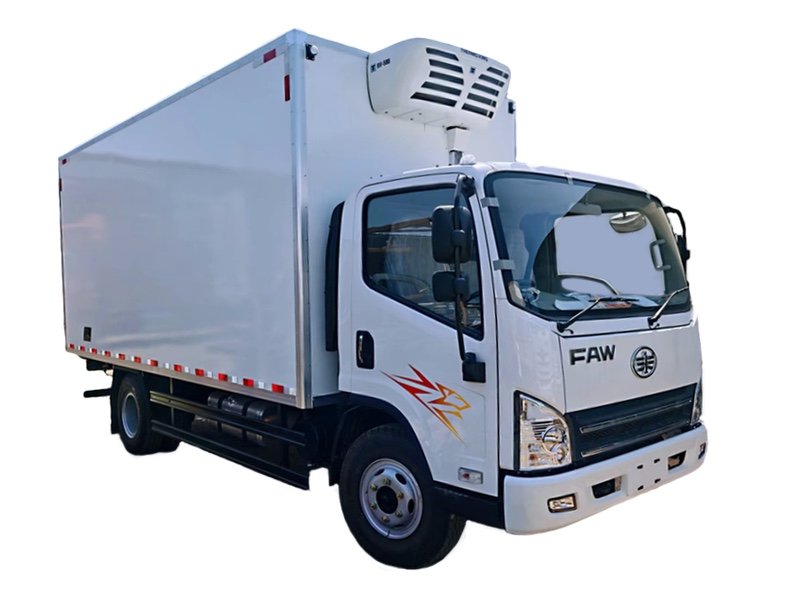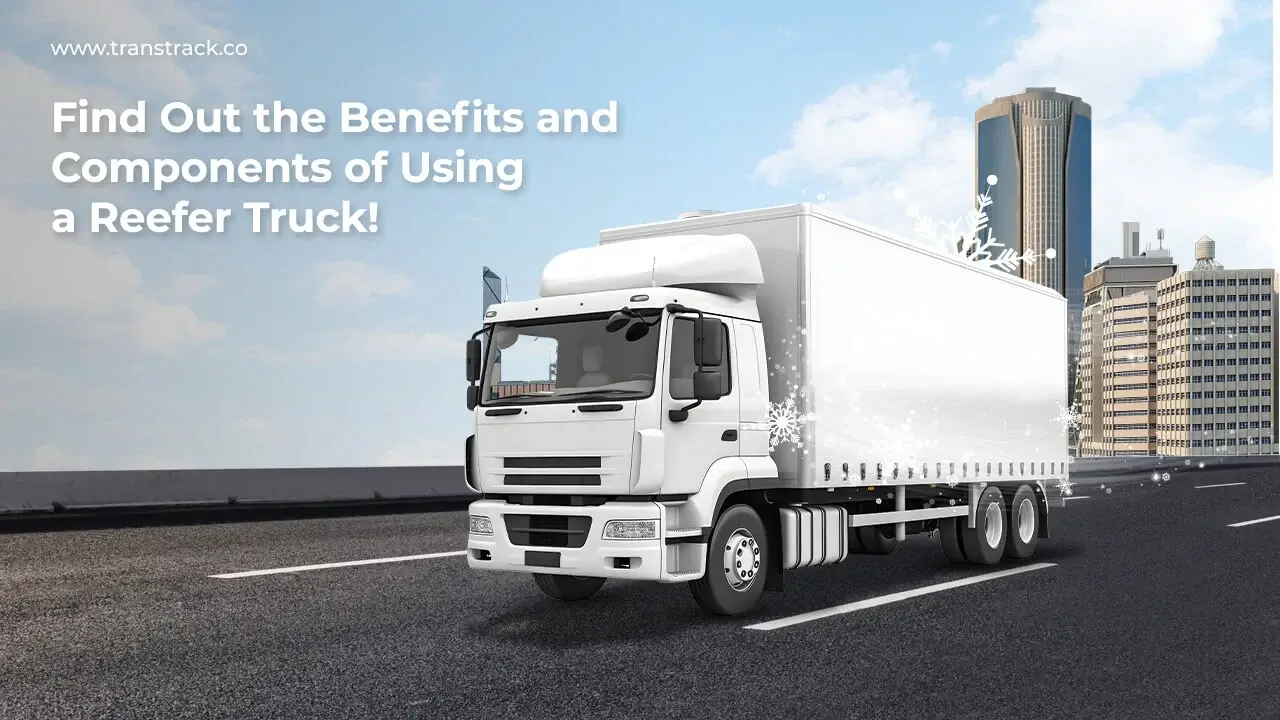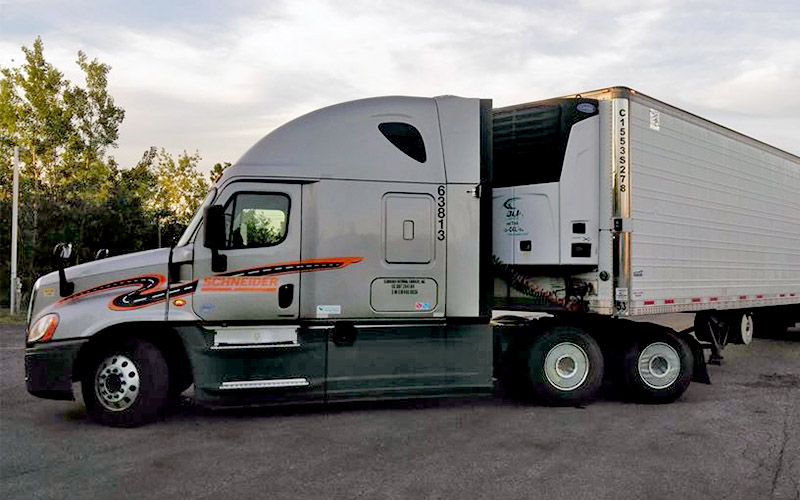Reefer Trucks Thermo King: Leading the Way in Cold Chain Technology
Reefer Trucks Thermo King: Leading the Way in Cold Chain Technology
Blog Article
Leading Developments in Transport Refrigeration: Enhancing Efficiency and Safety
The landscape of transportation refrigeration is going through significant transformation, driven by technologies aimed at improving both efficiency and safety and security. As these innovations continue to advance, it is essential to explore their effects on functional methods and governing conformity, triggering a better evaluation of exactly how they improve the future of transport refrigeration.
Smart Temperature Level Keeping Track Of Solutions
In the world of transportation refrigeration, smart temperature level monitoring systems have actually arised as a vital development for ensuring the stability of temperature-sensitive goods. These innovative systems leverage Web of Points (IoT) innovation to offer real-time data on temperature level changes, enabling operators to preserve ideal problems throughout the supply chain. By continuously tracking the temperature level of chilled containers and automobiles, firms can quickly determine inconsistencies that might jeopardize product high quality.

Moreover, smart tracking systems commonly integrate automated signals and notifications, allowing stakeholders to respond promptly to any kind of possible problems. This aggressive strategy not just decreases the threat of wasting yet also improves compliance with regulative requirements controling food safety and pharmaceutical transport.
The assimilation of data analytics within these systems likewise facilitates anticipating maintenance, aiding drivers to anticipate possible tools failings prior to they happen. This capability lowers downtime and enhances functional performance, inevitably resulting in set you back financial savings.
Eco-Friendly Refrigerants
Smart temperature level monitoring systems play an essential duty in preserving item quality, however the effectiveness of transportation refrigeration likewise pivots on the option of refrigerants used. As environmental issues increase, the shift in the direction of green refrigerants has actually come to be important. Traditional cooling agents, such as hydrofluorocarbons (HFCs), are well-known for their high International Warming Prospective (GWP), contributing significantly to climate change. In contrast, emerging choices like hydrocarbon-based refrigerants and hydrofluoroolefins (HFOs) present lower GWP alternatives, supplying both effectiveness and sustainability.
These environment-friendly refrigerants not just minimize ecological effect yet likewise straighten with global policies intended at terminating unsafe compounds. Their adoption can bring about improved energy efficiency, eventually reducing operating expense for transport refrigeration systems. Moreover, making use of natural refrigerants, such as ammonia and carbon dioxide, has gained grip due to their excellent thermodynamic buildings and lower environmental impact.
Buying environment-friendly cooling agents is not merely a regulatory conformity procedure; it represents a critical decision that boosts brand credibility and cultivates consumer commitment. reefer trucks thermo king. By prioritizing lasting practices, firms can contribute to a greener future while ensuring the honesty of moved goods
Advanced Insulation Materials
Using sophisticated insulation materials is critical for optimizing transportation refrigeration systems, as they dramatically enhance power performance and keep constant temperature level control. Typical insulation approaches usually drop short in preventing thermal transfer, leading to enhanced energy usage and fluctuating temperatures within refrigerated compartments.
Emerging products such as vacuum insulated panels (VIPs) and aerogels use premium thermal resistance, allowing for thinner accounts without jeopardizing performance. VIPs, for circumstances, make use of a vacuum layer to lessen convective and conductive warm transfer, making them suitable for space-constrained applications. Aerogels, known for their porous and light-weight structure, supply extraordinary insulation while significantly reducing general system weight.
Additionally, including phase change products (PCMs) right into insulation systems can even more maintain temperature levels during transportation. These materials take in and release thermal energy, efficiently buffering against exterior temperature level variations.
The assimilation of these advanced insulation materials not just minimizes the functional costs connected with energy usage but likewise extends the shelf life of temperature-sensitive products. As the transport refrigeration industry remains to develop, the fostering of ingenious insulation innovations will be critical in improving both efficiency and safety and security in cooled transport.
Automated Course Optimization
The effectiveness of transport refrigeration systems is substantially boosted with automated route optimization, which leverages real-time information and innovative algorithms to determine the most effective courses for distribution. By examining various factors such as web traffic patterns, weather problems, and shipment windows, these systems can dramatically reduce traveling time and gas consumption.
Automated route optimization minimizes human error and subjective decision-making, which can bring about ineffectiveness. This innovation allows fleet managers to allot sources better, ensuring that chilled Related Site products keep their more tips here called for temperature throughout the trip. By optimizing courses, business can also boost consumer complete satisfaction with timely shipments.
In addition, automated systems can adapt to unexpected situations, such as roadway closures or sudden traffic spikes, enabling dynamic rerouting. This versatility not only safeguards the integrity of temperature-sensitive products yet also adds to overall operational efficiency.
Implementing automated route optimization can cause considerable price savings while lowering the carbon footprint connected with transport. As organizations increasingly prioritize sustainability, this technology sticks out as a vital component in contemporary transport refrigeration, lining up functional objectives with ecological responsibility. Inevitably, automated course optimization stands for a significant innovation in the mission for performance and security in transportation refrigeration.

Real-Time Data Analytics
Automated route optimization substantially benefits from the integration of real-time data analytics, which gives critical insights right into the performance of transportation refrigeration systems. By making use of real-time information, transportation drivers can monitor temperature level variations and devices performance, making sure that subject to spoiling products are kept within needed criteria throughout transportation. This aggressive strategy not just boosts the high quality of the transported products yet likewise mitigates the risk of wasting and loss.

Along with improving efficiency, real-time analytics improves security by ensuring conformity with regulative criteria for temperature level control. This not just secures public health but likewise fortifies a company's track record - thermo king truck refrigeration. As the transport refrigeration market progresses, the combination of real-time data analytics emerges as a cornerstone for driving development, sustainability, and operational quality
Final Thought
In verdict, the developments in transportation refrigeration substantially improve both efficiency and safety within the industry. Collectively, these developments represent an essential development in transportation refrigeration, guaranteeing compliance with regulatory standards and advertising a greener future.
The landscape of transportation refrigeration is undergoing substantial change, driven by technologies aimed at improving both efficiency and safety and security.Smart temperature level monitoring systems play a vital duty in keeping product top quality, but the performance of transportation refrigeration likewise pivots on the selection of cooling agents used. Their adoption can Visit Website lead to improved energy effectiveness, eventually minimizing operating expenses for transport refrigeration systems. Ultimately, automated path optimization stands for a substantial advancement in the quest for performance and safety and security in transport refrigeration.
In conclusion, the innovations in transport refrigeration dramatically enhance both efficiency and safety within the sector.
Report this page